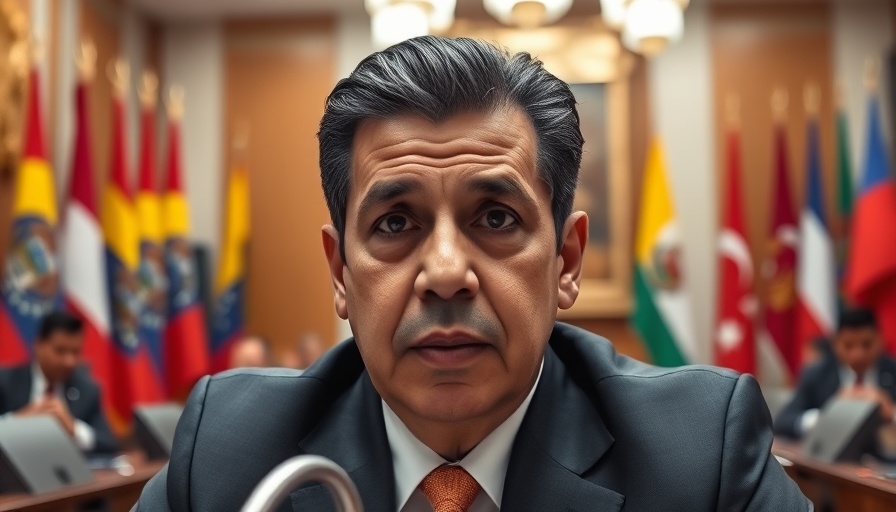
The Rising Tensions in Latin America
The recent condemnation by the Bolivarian Alliance for the Peoples of Our America–Peoples’ Trade Treaty (ALBA-TCP) against the U.S. military buildup near Venezuela reflects deeper concerns of regional stability in Latin America. Amid rising tensions and accusations of Venezuela as a 'narco-state', the U.S. has deployed approximately 4,000 troops near Venezuela under the guise of an anti-drug initiative. This development has drawn unanimous criticism from ALBA-TCP member nations, which view these actions as manifestations of imperialism and illegal intervention.
Voices of Solidarity Among Regional Allies
Cuba's President Miguel Díaz-Canel led the charge in denouncing this military presence, calling it an irrational attack from the United States. He urged for a collective stand against these threats, reinforcing ALBA-TCP's commitment to regional unity and dismissing external pressures that aim to dictate the fate of Latin American countries. His remarks highlight that the bond among member states is crucial as they face external aggressions, emphasizing the significance of internal solidarity over external intervention.
Integration for Peace and Stability
The summit declarations demonstrated a palpable concern that not only Venezuela but the entire Latin American and Caribbean region is under siege from U.S. policies. Díaz-Canel's emphasis on enhancing integration among member states further illustrates the belief that united efforts are essential to combat external pressures and maintain sovereignty. Colombian President Gustavo Petro's call for urgent discussions among regional foreign ministers echoes the need for collective security measures.
The Stand Against Foreign Interference
Despite the strong stance of ALBA-TCP, there remains opposition from some regional players, notably Guyana, which has aligned with U.S. narratives labeling Venezuela as a source of regional instability. This dynamic indicates a potential fracture in regional alliances, showcasing that foreign influence can complicate unity efforts projected by Latin American leaders.
As geopolitical tensions escalate, the decisions coming out of Latin America will be pivotal. The solidarity shown between nations in this turbulent climate could either foster a strengthened alliance or unveil deeper divisions spurred on by external influences.
 Add Row
Add Row  Add
Add 




Write A Comment